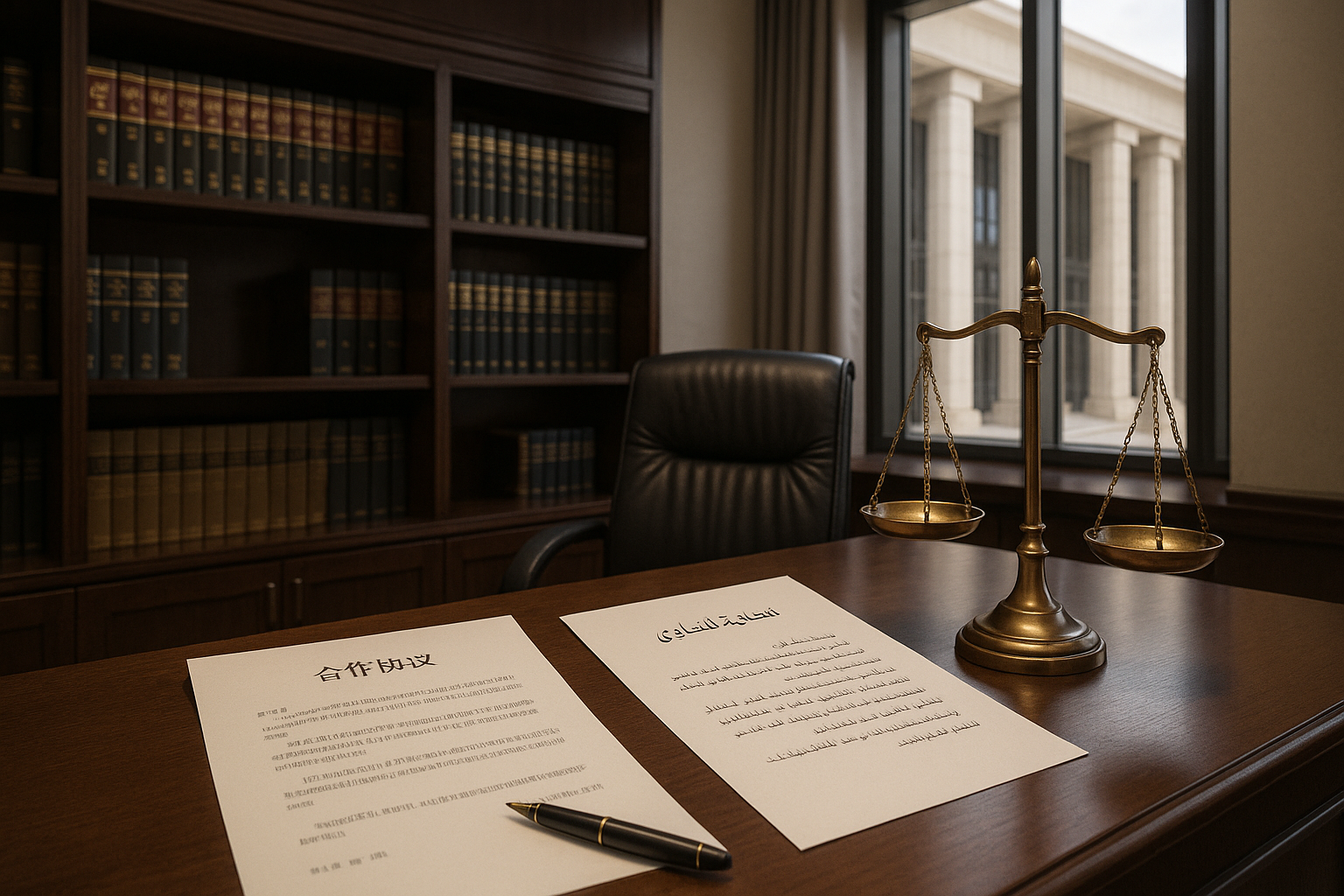Legal Framework Excellence: Supporting and Safeguarding Business Growth
Introduction
Behind every successful trade deal, every major cross-border investment, and every groundbreaking joint venture lies an invisible but indispensable architecture: a robust legal framework. For the flourishing economic partnership between the People’s Republic of China and the United Arab Emirates, this framework is not just a background detail but a central pillar of their success. The two nations have meticulously crafted a sophisticated and constantly evolving legal and regulatory environment designed to protect investments, ensure fair and efficient dispute resolution, and create the predictability and security that businesses crave. This commitment to legal excellence has been a critical catalyst, providing the confidence for capital and innovation to flow freely and powering the partnership to its current height of over $100 billion in annual trade. This article delves into the key components of this exemplary legal framework, exploring the foundational bilateral treaties that provide security, the world-class dispute resolution mechanisms that offer recourse, the joint efforts to protect the valuable currency of innovation—intellectual property—and the shared vision for a harmonized legal future.
The Foundation: Bilateral Treaties and Agreements
The legal relationship between China and the UAE is built upon a solid foundation of bilateral treaties that provide clear, internationally recognized protections for businesses and investors. The cornerstone of this is the Bilateral Investment Treaty (BIT). This powerful agreement establishes the fundamental rules of the road for investors from both countries. It guarantees core principles such as “fair and equitable treatment,” ensuring that investors are not discriminated against. It provides robust protection against unlawful expropriation of assets and, crucially, guarantees the right for investors to repatriate their profits and capital. The BIT sends a powerful signal to the business community: your investments are secure and protected under international law.
Complementing the BIT is the Agreement on the Avoidance of Double Taxation. This vital treaty addresses one of the key concerns for any international business: being taxed on the same income in two different countries. By clearly delineating the taxing rights of each nation, the agreement prevents this, making cross-border business significantly more efficient and profitable. It simplifies the tax landscape for companies, reduces their compliance burden, and directly encourages greater trade and investment. Beyond these cornerstone treaties, a vast network of Memoranda of Understanding (MoUs) between various government bodies—from securities commissions to central banks—facilitates regulatory cooperation, the sharing of vital information, and the progressive alignment of financial and commercial standards, further knitting the two economies together.
Dispute Resolution: A World-Class Hub for International Arbitration
In the world of international business, disputes are an inevitable reality. What matters is having access to a dispute resolution mechanism that is neutral, efficient, and enforceable. The UAE has strategically positioned itself as a leading global center for international commercial arbitration, and this has become a major asset for the China-UAE partnership. Its geographical location at the crossroads of the world, its politically neutral stance, and its modern, pro-arbitration legal framework make it an ideal venue for resolving disputes involving Chinese, Emirati, and other international parties.
World-class institutions form the heart of this ecosystem. The Dubai International Arbitration Centre (DIAC) and the Abu Dhabi Global Market (ADGM) Arbitration Centre are state-of-the-art facilities that operate according to the highest international standards. They offer modern arbitration rules, a diverse pool of experienced international arbitrators, and specialized expertise in handling complex commercial disputes across sectors like construction, energy, and finance. These centers have made concerted efforts to cater to Chinese parties, including promoting Mandarin-speaking arbitrators and legal experts familiar with Chinese commercial law.
However, the most critical piece of the puzzle is enforceability. A legal victory is meaningless if the judgment cannot be enforced. Both China and the UAE are signatories to the New York Convention on the Recognition and Enforcement of Foreign Arbitral Awards, the global standard for cross-border legal enforcement. This commitment ensures that an arbitral award rendered in a recognized institution in Dubai can be taken to a court in Shanghai and be enforced as if it were a local judgment, and vice-versa. This guarantee of enforcement provides businesses with the ultimate legal certainty, knowing that their contractual rights have real teeth.
Protecting Innovation: The Intellectual Property Framework
As both China and the UAE transition towards knowledge-based, innovation-driven economies, the protection of intellectual property (IP) has become a paramount shared interest. For technology companies, their patents, trademarks, and copyrights are their most valuable assets. The UAE has developed a comprehensive and robust legal framework for IP protection that aligns with international best practices, providing a secure environment for innovators.
This shared priority has led to close cooperation between the IP agencies of both countries. They have established agreements for sharing information on IP registration, collaborating on training programs for patent and trademark examiners, and launching joint initiatives to combat the trade in counterfeit goods. This proactive stance on IP protection gives Chinese technology companies, from established giants to dynamic start-ups, the confidence to invest heavily in the UAE. It encourages them to establish R&D centers, transfer valuable technology, and launch their latest products in the market, secure in the knowledge that their valuable innovations will be legally safeguarded.
The Future: Harmonization and Legal Tech
The China-UAE legal partnership is not static; it is constantly looking to the future. There is an ongoing high-level dialogue aimed at further harmonizing legal and regulatory standards, particularly in new and rapidly evolving areas like FinTech, data privacy, and e-commerce. The goal is to create an even more seamless legal environment that eliminates friction and makes cross-border business as straightforward as possible.
Both nations are also at the forefront of the “Legal Tech” revolution, embracing technology to make legal services more efficient, accessible, and affordable. There is significant potential for collaboration in developing and adopting AI-powered tools for contract management, online dispute resolution platforms, and blockchain-based systems for IP registration. In this complex legal landscape, the UAE China Chamber of Commerce (UECN) serves as a vital guide, providing its members with legal support, connecting them with qualified legal professionals, and keeping them abreast of the latest regulatory changes to ensure they can operate with confidence.
Conclusion: A Framework of Trust
The remarkable success of the China-UAE economic partnership is a testament to many factors, but none is more fundamental than the framework of trust built upon legal excellence. The robust bilateral treaties provide security, the world-class dispute resolution centers offer justice, and the strong IP protection regime safeguards innovation. This comprehensive legal architecture is the silent partner in every transaction, providing the confidence and security that empower businesses, investors, and innovators to take risks, forge partnerships, and drive growth. The shared commitment to the rule of law is a core value of the China-UAE relationship and remains the critical, though often unseen, ingredient in their extraordinary shared success story.







